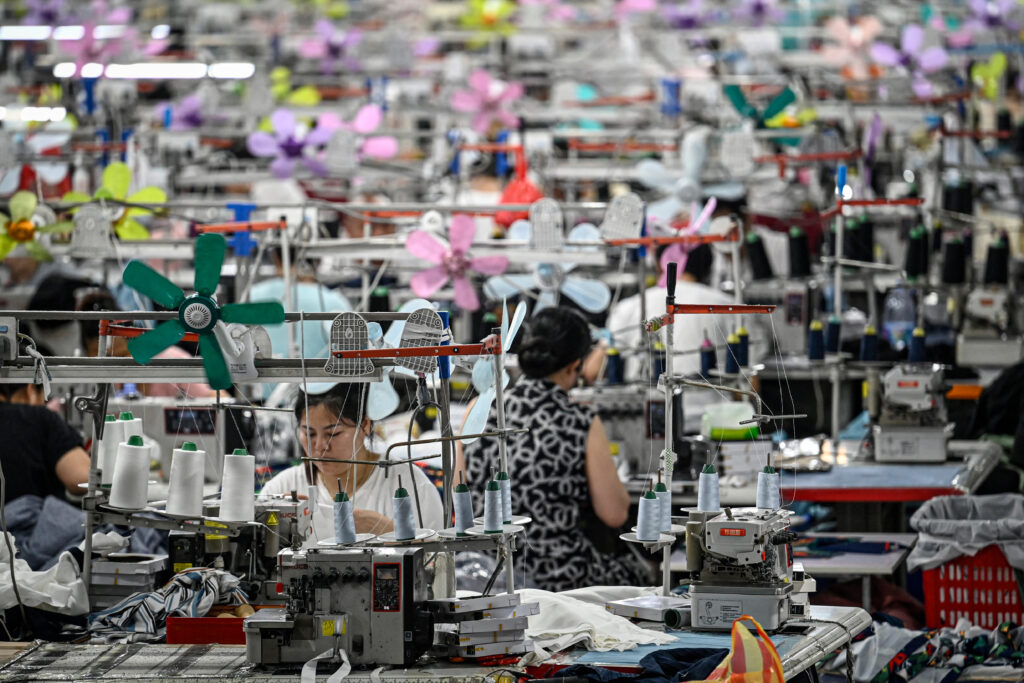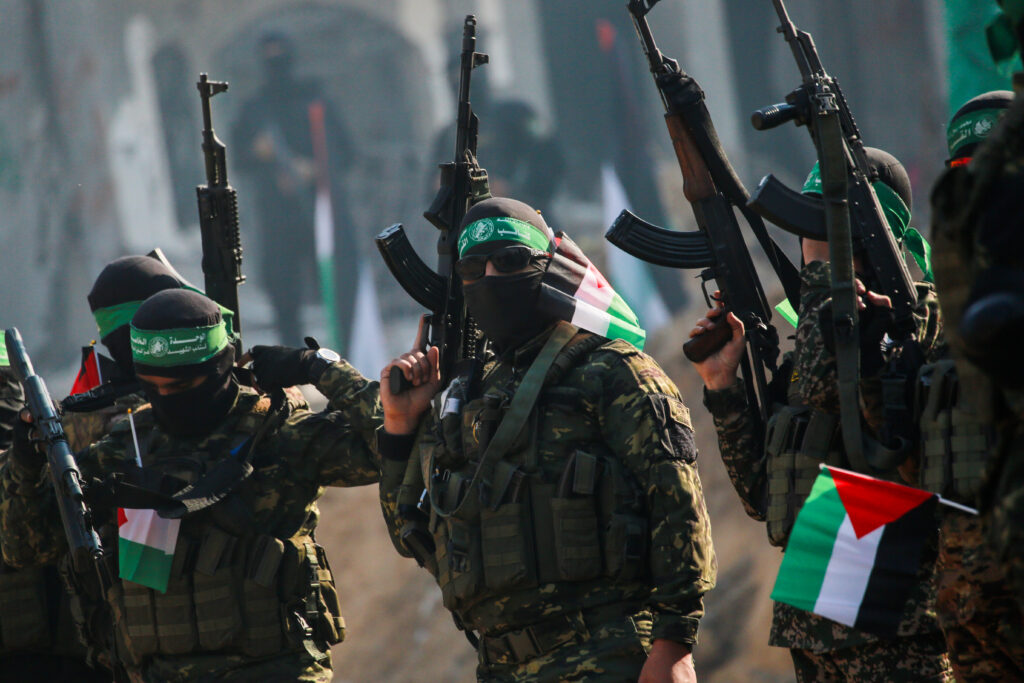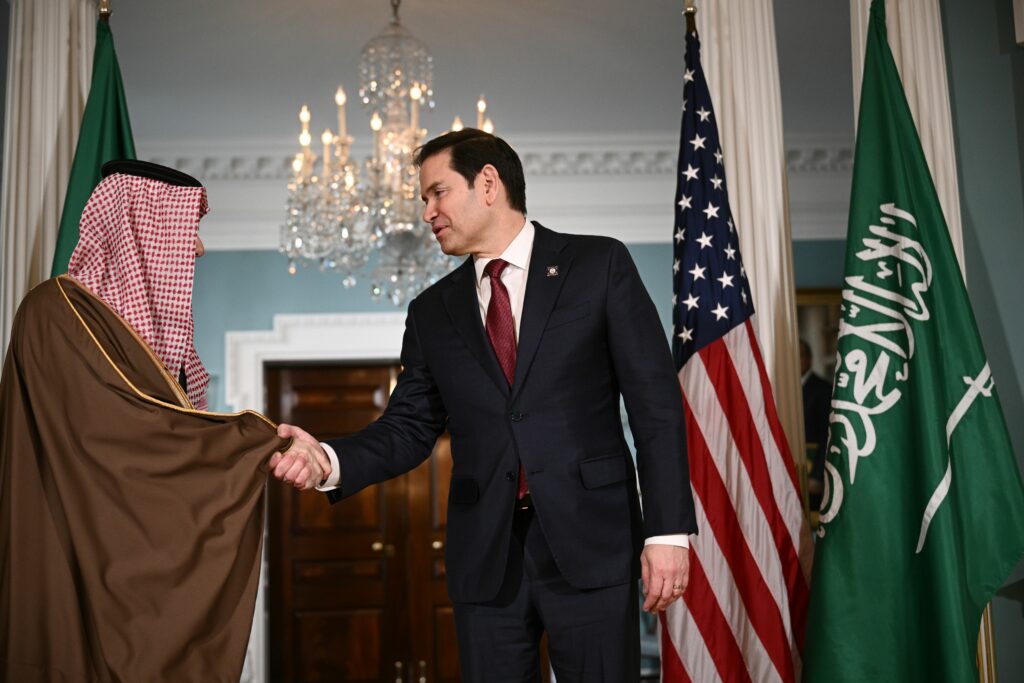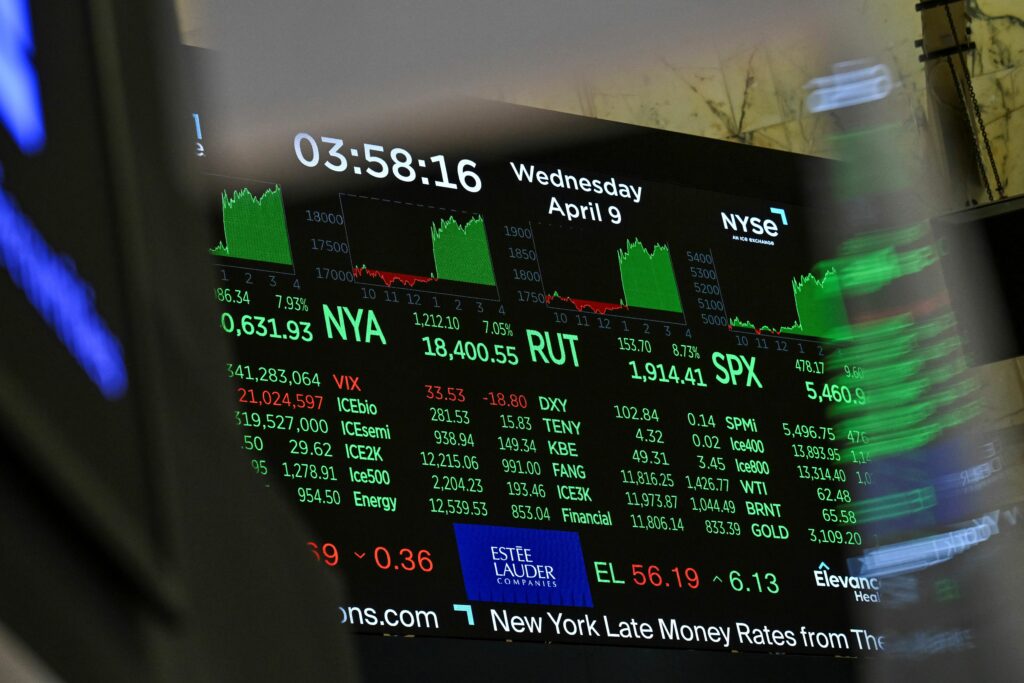AFP Asia Business
Where things stand in the US-China trade war
US President Donald Trump has ramped up his trade war against China, further raising import tariffs on Beijing to 125 percent despite pausing them for other countries.The move came hours after China announced reciprocal action against the United States in response to a previous levy hike.AFP looks at how the escalating trade war between the …
Hamas leadership operating behind veil of secrecy
After Israel killed a string of its leaders, Hamas anointed new commanders to top ranks, this time shrouding their identities in secrecy to protect them from assassination.Israel vowed to crush Hamas in retaliation for the October 7 attack, launching a blistering offensive in Gaza that has massively weakened the movement while reducing much of the territory to rubble.Hamas’s political chief Ismail Haniyeh, the head of its armed wing Mohammed Deif, and Yahya Sinwar, mastermind of the October 7 attack, have all been killed, as have a string of other commanders and political figures.Yet unlike its Lebanese ally Hezbollah, whose cult of personality around its slain leader Hassan Nasrallah was a key pillar of its identity, Hamas has placed less of an emphasis on its top ranks.The group has remained tight-lipped over the names of its top ranks, particularly the Ezzedine al-Qassam brigades. “The name of the head of the Ezzedine al-Qassam Brigades will remain a secret,” said a source close to Hamas’s armed wing.Researchers say it is likely that the role was inherited by Yahya Sinwar’s younger brother Mohammed, whom Hamas put in charge of the hostages taken into Gaza in 2023.”Yahya Sinwar’s personality was rather unique” and militants viewed him as a “hero”, said Laetitia Bucaille, who teaches political sociology at the INALCO institute of Middle East studies in Paris.Mohammed Sinwar’s blood link to the slain commander, coupled with his own experience in the brigades, have conferred upon him an automatic authority, she said.- Collective leadership -Israel vowed after October 7 to eradicate Hamas, and while the movement has suffered staggering losses, it has not been crushed.According to Yasser Abu Heen, founder of the Gaza-based Safa news agency, the loss of so many of its leaders has impacted Hamas, “but only temporarily”.”These hits do not pose an existential crisis, Hamas has its own way of running its institutions,” he said. “Israel will not be able to eradicate it.” Speaking to AFP on condition of anonymity, a member of Hamas’s political bureau described how it acts as the movement’s executive arm, voting on decisions and then taking action.Political bureau membership is decided by the larger Shura Council, the equivalent of a parliament, he added.”We will not know the new leaders’ names. There’s a push to keep their identities secret, and to maintain a collective sense of power,” said Leila Seurat of the Arab Centre for Research and Political Studies in Paris.”This isn’t a movement based on a charismatic leadership.”While Hamas has survived thus far, it has yet to make the toughest decision of all concerning its future role in Gaza and in the Palestinian struggle for statehood.Reduced under daily bombardment, Hamas faces demands not just from Israel but from powers around the world and even from some Palestinians to give up power.- Dissent -The Palestinian Authority, whose decades of corruption contributed to Hamas’s ascent, has pitched itself as a credible ruling entity for the battered territory.Within Hamas, discussions are raging on whether to hand over power.According to sources cited by the Soufan Center in New York: “The internal debate has intensified to the point where some Hamas political leaders have considered breaking with the group’s military leaders in Gaza.”Hamas is no stranger to division, with Seurat pointing to crises in the past over a range of issues from the Arab Spring to the movement’s alliance with Iran.But the war with Israel has brought to a head frustration among ordinary Gazans sick of a conflict that has killed many thousands and reduced their territory to rubble.Musa Abu Marzouk, a leading Hamas figure involved in talks over the ceasefire with Israel, told The New York Times in late February that as far as he was concerned, “if it was expected that what happened would happen, there wouldn’t have been October 7”.In March, hundreds of people took to the streets of Gaza, chanting “Out, out, Hamas out!”, after a rare call to protest circulated via Telegram.”Some Palestinians want Hamas to go. Some have always been opposed, while others are just fed up,” said Seurat.Pressure alone will not work, however, because Hamas has no viable competitor, and the people of Gaza simply do not have the means to stand up to it.”They are still in control,” said Bucaille. “While Hamas has been weakened, no one can stand up to it for now.”
US, Saudis urge Sudan peace talks as top Riyadh diplomat visits Washington
Saudi Arabia’s top diplomat held talks in Washington on Wednesday, laying the groundwork for a visit by US President Donald Trump, which would be the first foreign trip of his second term.Foreign Minister Prince Faisal bin Farhan met with US Secretary of State Marco Rubio at the State Department, and the two called on the Sudanese army and paramilitary forces to resume peace talks.The diplomats “agreed that the Sudanese Armed Forces and Rapid Support Forces must return to peace talks, protect civilians, open humanitarian corridors, and return to civilian governance,” the State Department statement said following the meeting.The call came after the Sudanese army said last week it had retaken full control of the capital Khartoum after weeks of attacks by the paramilitaries.The RSF has been battling the army since April 2023, and the war has created what the United Nations describes as the world’s worst hunger and displacement crises. More than 12 million people have been uprooted, tens of thousands killed, and a UN-backed assessment declared famine in parts of the country.The United States under Joe Biden and the Saudis have previously sponsored several unsuccessful rounds of negotiations to end the bloody conflict.- Trump visit -Trump said last month he may visit Saudi Arabia as early as April in a reprisal of 2017, when the oil-rich, conservative kingdom was the first destination of his first term in office.The foreign minister’s visit is aimed to “prepare for Trump’s visit to Riyadh,” a source close to the Saudi government said.The source, who requested anonymity to discuss sensitive matters, said “developments in Gaza, Yemen and Syria” were also on Prince Faisal’s agenda.Rubio and his Saudi counterpart on Wednesday “discussed diplomatic efforts in Gaza to release hostages and work towards a durable ceasefire,” the State Department statement read.Palestinian group Hamas should be “completely disarmed and disempowered” after fighting ends in the territory, it added.In January, Saudi Arabia’s de facto ruler, Crown Prince Mohammed bin Salman, promised to pile $600 billion into US trade and investments.Trump later said Saudi Arabia had agreed to “spend close to a trillion dollars… in our American companies, which to me means jobs.”Trump forged close relations with Riyadh in his first term and is expected to push Saudi Arabia, home of Islam’s holiest sites, towards normalizing ties with Israel as a major foreign policy objective.Trump in his first term also boasted of having protected Crown Prince Mohammed from greater repercussions over the killing of Saudi dissident and US resident Jamal Khashoggi inside the Saudi consulate in Istanbul.
US stocks soar on Trump tariff reversal, oil prices jump
Wall Street stocks rocketed higher Wednesday following President Trump’s shock move to pause many new tariffs, lifting an equity market beaten down by days of losses amid rising recession worries.The catalyst came around 1720 GMT when Trump announced a 90-day pause on the most onerous new tariffs for every country except China, which was targeted …
US stocks soar on Trump tariff reversal, oil prices jump Read More »




